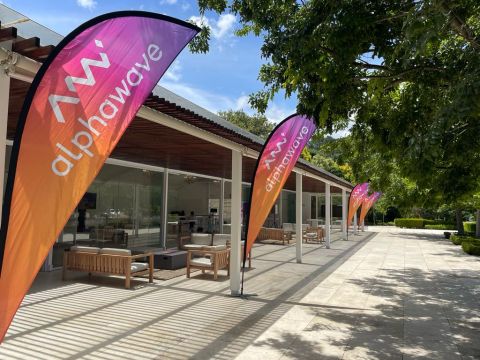According to data from Venture Capital Journal, funding for deeptech startups quadrupled from $15 billion in 2016 to $60 billion in 2020. More data from deeptech investment firm, MVF Partners, shows that deeptech had about 120 unicorns with a valuation of $463 billion.
According to a report by Intel and AfriLabs, the deeptech ecosystem in Africa is growing, driven by the development of new applications and the integration with existing products in various sectors, most notably agriculture, fintech, ecommerce, mobility, and logistics.
Between 2015 and June 2022, deeptech companies raised a cumulative $2.35 billion in disclosed funding, accounting for 15% of all the funding raised by technology companies in the continent over the same period. Kenyan startups got the bulk of the funding, with 119 deals valued at $1.46 billion, followed by South Africa, Nigeria, and Egypt.
However, the report also states that growth in the sector is being slowed down by numerous factors, including a lack of adequate support systems for deeptech, the cost of research and development (R&D) associated with a lot of deeptech products, and a lack of funding for startups in the industry.
Alphawave is a South African technology investment group whose portfolio companies are in the fields of web 3.0, artificial intelligence, space tech, agri tech, and virtual reality. Companies in its portfolio range from established profitable companies, to fast-growing scaling businesses, to incubation and innovation units.
Alphawave’s beginnings
According to CEO Frans Meyer who co-founded the company in the mid-90s, his interest in deeptech was sparked by his academic qualifications as well as the boom that wireless communications were experiencing at the time.
“Our interest was because of our academic qualifications, and the fact that broader wireless communication that effectively came alive in the 1990s made it easy for us to understand that we could take this field that we’ve got very special skills in and apply it in this sector that was exploding in growth,” Meyer told TechCabal in an interview.
One of Alphawave’s portfolio companies, Fanfire, is an enterprise web 3.0 solutions startup taking advantage of the NFT craze to apply it to the wine, art and sports industries by forming online marketplaces where valuable items can be traded easily using NFTs.
Another portfolio company, Predictive Insights, combines machine intelligence with economic and behavioural insights to enable restaurants and retailers to predict demand, improve the accuracy of revenue forecasts up to 18 months ahead, and reduce the cost and environmental impact of waste.
According to Meyer, Alphawave’s technical background allows them to assist their companies not only with the capital needed to constantly experiment, but also the technical expertise to help them build robust and scalable products.
“I think the most important thing that we provide is business advice on how to actually take technology and make a business out of it. And you know, because we’ve got experience in that, we work closely with the companies to try and build a strategy of how they should go to market, whether it’s through services first and products later,” said Meyer.
“We also have a number of senior people in marketing and HR and finances that we try to make available to these companies, especially the smaller ones, so that they can leapfrog very quickly and understand what they can do in terms of marketing, HR, finances, sales, etc.”
One of the portfolio startups that has benefited from Alphawave’s unique investment strategy is Cubecom, a space tech company that designs, develops, and manufactures communication systems for satellites.
Sozo Labs, a virtual reality startup using VR to explore ways to enhance education in schools through more immersive experiences and significantly reduce risks and mortality rates in construction and heavy industries, has also significantly benefited from Alphawave’s strategy.
“I can honestly say that as a portfolio company of Alphawave, I haven’t experienced running a company as easily as I have, as part of this group. We largely get support as and when we need it. We get left alone to get on with the job. There’s this understanding that the best way to support is to ultimately help when necessary, but get out of the way and let the companies succeed themselves,” said Sozo Labs CEO, Jason Haddock in an interview with TechCabal.
Alphawave’s success stories
When it comes to successful exits and product launches, Alphawave has had numerous success stories since its launch. EMSS Antennas is an Alphawave portfolio company which developed the world’s most sensitive radio astronomy receiver for the MeerKAT space telescope, part of the Square Kilometre Array (SKA) project.
Another portfolio company, FEKO, which develops simulation software, was sold to NASDAQ-listed company, Altair, in 2014. Alphawave also claims that over half of the companies in its portfolio are selling products abroad, with one firmly established as the market leader in the US.
“We also have a company that does work on RF (radio frequency) safety for Vodacom and MTN when we started working with them in 1995. We still got contracts with them, delivering services in that field and we also expanded the services to the US, Australia, and Europe.”
According to the aforementioned report on the state of deeptech in Africa, challenges faced by startups in the field include a lack of adequate, tailored support for deeptech startups, minimal cross-industry collaborations and networking forums, and a lack of talent to meet research and development demand.
According to Frans Meyer, Alphawave’s investment strategy covers most of those pain points, ensuring that their portfolio companies are able to innovate with minimal challenges. As deeptech takes off and use cases increase, it would be interesting to see how Alphawave’s companies fare in the next few years.





















